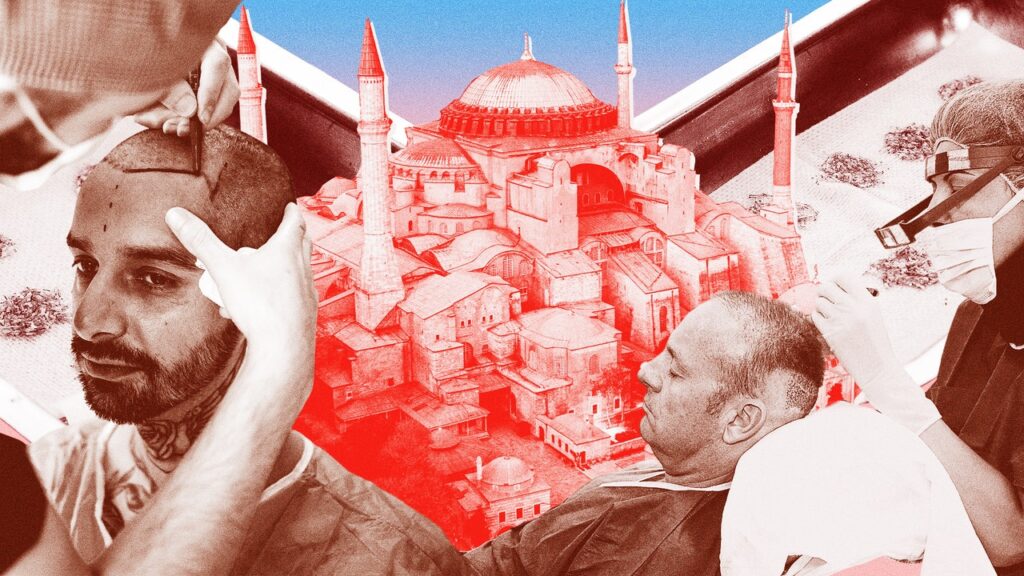But I had a passport, a high tolerance for risk, and plenty of time to hang out on Reddit.
I fell down the rabbit hole of the Hair Transplant subreddit, fascinated by the endless stream of before and after photos, where hundreds of peers proudly share their bald-to-hot hair transformations, and are surprisingly friendly among each other, often revealing where they went and how much they paid. One destination kept popping up: Turkey, with clinics with names like Hair of Istanbul, Hair Transplant Turkey, World Plast Hair Istanbul, Hairpol Istanbul, Hair Health Istanbul, and Hair Time Istanbul.
Why is Turkey such a hotbed of hair growth? The first reason is obvious: “Turkey is a developing country,” Ali Caglayan, founder of the tourist guide Istanbeautiful, told me. “Wages here are very low. The cost of renting an office is also very cheap compared to the U.S.”
Of course, the same is true in Mexico, Thailand, the Caribbean, and other places with lots of hair clinics. But at least in Turkey, the quality of the doctors sets the clinics apart. “At first it was money; it was cheaper than other European countries,” says Mehmet Fatih Akdemir, founder of Hair of Istanbul. “So Turkish doctors became more experienced and better.” It’s a virtuous cycle, he argues: More hair tourism leads to better doctors, which leads to more tourism, which leads to even better doctors.
Turkey’s Ministry of Health saw this growing industry as an opportunity to help promote medical tourism, offering tax breaks and rebates on medical equipment, digital marketing and even free hotel stays for patients, Kagarian says. The plan worked: Turkey now sees 1.5 million to 2 million medical tourists a year for hair transplants, plastic surgery, dental work and weight-loss treatments, Kagarian estimates.
Many of Turkey’s hair clinics have a mixed reputation, disparaged by online critics and U.S. surgeons as “hair mills” that use assistants and technicians rather than doctors to do as many procedures as possible. They caution that while a medical professional might draw the hairline and give a quick consultation, it’s a team of assistants who do the actual drilling and implanting the grafts. Hence the low prices.
“The biggest risk is falling into the hands of the wrong doctor and not doing the proper research,” says Dr. Ricardo Mejia, a board member of the International Society of Hair Reconstruction Surgery (İSHRS), a non-profit medical association that includes Turkish doctors. He urges me to make sure the doctor is registered with İSHRS and points me to the ISHRS page, which recounts horror stories from “black-market pirate clinics”: scarring, infections, poor hair growth, unnatural hairlines. “Who’s going to do the surgery?” he asks me. “A doctor, a technician? A taxi driver who did a training session last week?”


